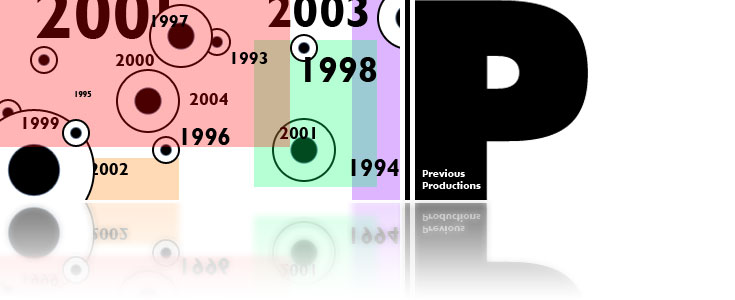Company
Extras
Stephen Sondheim & George Furth's Company
With Company Stephen Sondheim established a new idiosyncratic style, abandoning linear narrative and using song not as an extension of the immediate dramatic situation, but as an observation of it. Not only did Sondheim revive decaying traditions by drawing upon long established Broadway musical forms, but he also stamped his own indelible fingerprint on the genre by using these forms in innovative musico-dramatic contexts. Company has been argued to be almost 'Brechtian' in style: the songs stand outside the action and comment, rather than originating with the emotions of a character and being sung as a way of realizing the emotional pressure of a situation. The focus of each song then becomes Bobby, and not the audience.
The unusual structure of Company is perhaps best understood through its development. George Furth, a celebrated character actor, had written a set of short plays, each involving a couple and an observer. To form Company, Furth kept his original couples and gave the rôle of observer to a single, pivotal character: Robert. The cast consists of fourteen clearly delineated characters, although throughout, the show retains all the hallmarks of an ensemble piece as they react and work together with the character of Robert.
The characters in Company are depicted as being real people in real situations. The audience members become the observers of the action, alongside Robert, to view and reflect upon the his friends' relationships. As every character possesses a definitive identity and a distinctive persona, the audience is able to engage with each one and their own particular predicament. The themes examined are applicable to everyone, regardless of age or marital status.
In Company Sondheim wanted to tackle the complexities of relationships and intimacy in an increasingly urbanised, dehumanised society. Rather than celebrate being in love, Company questions 'Being Alone' and 'Being Alive'.
Since the original production in 1970 which ran on Broadway for just 690 performances, lifestyles have changed greatly, and now, in the late 1990s the question of whether Bobby is alone because he is gay often arises. Sondheim and Furth took time out to restore dialogue from the original plays for the 1995 revival that makes it clear that he is not. In the same way it confirms that the character of Peter, the divorcee who has had more than one homosexual experience is also not gay. It is curious however that Sondheim left the 'someone' that Bobby searches for in Being Alive with no pronoun and no gender.
For the same revival Sondheim restored the song Marry Me a Little as the final number in Act I. It was originally written as his proposal to Amy, but it revealed more self-realisation for Bobby than Sondheim intended for that part of the show, so it was reversed, to become an internal monologue.
The show originally concluded, not with a happy ending, as the other musicals being written at the time were, but with a sardonically titled song: Happily Ever After, which created a devastating portrait of marriage as a suffocating hell. The song was later cut completely:
Someone to hurt you too deep
Someone to bore you to death...
Someone to bleed you
of all the things
You don't want to tell
That's happily ever after
Ever, ever after
In Hell.
Harold Prince, the Producer / Director altered the ending before the New York run because Robert was not achieving any resolution to his problems. Even if Being Alive presents an ambiguous view of Bobby's inner feelings, it replaces the complete despair of the original ending with some hope. Robert cherishes the notion of a safe relationship - kept at a distance - through his friends. Robert's problem stems from loneliness, not emotional indifference or complacency. Sondheim maintains a sense of consistency throughout the piece as Bobby experiences each musical number surrealistically inside his own head. Furth even suggested that the entire action of Company takes place in a couple of seconds inside Bobby's brain, a kind of musical stream-of-consciousness.
The whole show hinges on Bobby making a very small change in his perspective on life, a change that has an enormous impact. It is really just the 'door' opening that allows him to have the possibility of a real relationship in the future.
Company is not supposed to provide the answers to all of the questions it poses. Sondheim is reported to have said that he wanted to create a musical 'where the audience would sit for two hours screaming their heads off with laughter, and then go home and not be able to sleep'. It is this that accounts for the universality of the show. Company deals primarily with emotion, with what it means to be with - and without - company.









